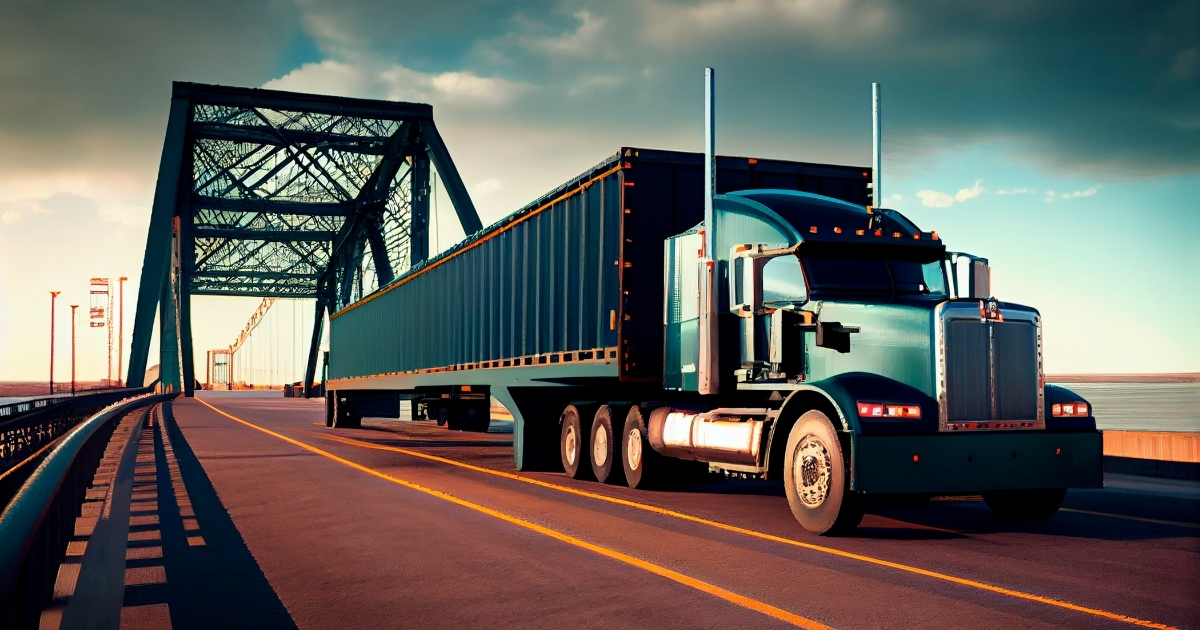In global trade, container trucks are vital for seamless goods transport. Beyond standard models, specialized container trucks cater to unique logistics needs. Refrigerated trucks ensure temperature-sensitive cargo stays fresh, flatbed trucks handle oversized items, and side-loader trucks simplify loading in tight spaces. These specialized options enhance efficiency and safety, meeting diverse industry demands and driving smoother logistics operations across the supply chain.

What Are Other Container Trucks?
Optimize Efficiency and Reduce Costs on All Your Shipping Needs
Types of Other Container Trucks
Side Loader Trucks
Side loader trucks are designed to load and unload containers from the side, ideal for narrow spaces. These trucks feature hydraulic systems for easy lifting and placement, reducing the need for additional equipment. Their unique design allows operation in confined areas, making them a valuable asset in urban logistics.
- Efficient in narrow spaces
- Equipped with hydraulic systems
- Reduces need for additional equipment

Our Achievements:
Reach Stacker Trucks
Reach stacker trucks are versatile machines used for handling containers in small and medium-sized ports. They can lift containers to great heights and move them over short distances, making them perfect for stacking containers in storage yards. Their ability to handle heavy loads with precision makes them indispensable in port operations.
-
Versatile for small and medium ports
-
Capable of lifting to great heights
-
Ideal for stacking in storage yards
Straddle Carriers
Straddle carriers are specialized vehicles that lift containers by straddling them, allowing for easy transport within port terminals. These trucks are known for their speed and efficiency, as they can quickly move containers from one location to another. Their design minimizes the need for additional handling equipment, streamlining port operations.
-
Lifts containers by straddling
-
Known for speed and efficiency
-
Minimizes need for additional equipment
Benefits of Specialized Container Trucks
Improved Handling Efficiency
Specialized container trucks are engineered to enhance handling efficiency, reducing the time and effort required to move containers. Their advanced designs and features allow for precise control, minimizing the risk of damage during transport. This efficiency translates to cost savings and increased productivity for logistics companies.
-
Enhances handling efficiency
-
Reduces time and effort
-
Minimizes risk of damage
Reduced Loading Times
The design of other container trucks allows for faster loading and unloading of containers, significantly reducing turnaround times. This speed is crucial in high-demand environments where time is of the essence. By optimizing loading times, these trucks contribute to smoother and more efficient supply chain operations.
-
Faster loading and unloading
-
Reduces turnaround times
-
Optimizes supply chain operations
Enhanced Safety Measures
Safety is a top priority in logistics, and specialized container trucks are equipped with features that enhance safety during operations. From advanced braking systems to stability controls, these trucks are designed to prevent accidents and ensure the well-being of operators and cargo alike.
-
Equipped with advanced safety features
-
Prevents accidents
-
Ensures operator and cargo safety
Other Container Trucks in Port Operations
Streamlining Container Movement
In port operations, the ability to move containers efficiently is crucial. Other container trucks are designed to streamline this process, allowing for quick and seamless movement of goods. Their specialized features enable them to navigate complex port environments with ease, ensuring that containers are delivered to their destinations promptly.
-
Quick and seamless movement
-
Navigates complex environments
-
Ensures prompt delivery
Optimizing Space Utilization
Space is a valuable commodity in ports, and other container trucks are instrumental in optimizing space utilization. Their ability to stack containers efficiently allows for maximum use of available space, reducing congestion and improving overall port efficiency.
-
Efficient stacking capabilities
-
Maximizes space utilization
-
Reduces congestion
Increasing Throughput Capacity
By enhancing the speed and efficiency of container handling, other container trucks contribute to increased throughput capacity in ports. This capability is essential for accommodating growing volumes of trade and ensuring that ports can meet the demands of global commerce.
-
Enhances speed and efficiency
-
Increases throughput capacity
-
Accommodates growing trade volumes
Technological Advancements in Container Truck Design
Automated Guidance Systems
The integration of automated guidance systems in container trucks has revolutionized the logistics industry. These systems enable trucks to navigate autonomously, reducing the need for manual intervention and increasing operational efficiency. Automated guidance systems also enhance safety by minimizing human error.
-
Enables autonomous navigation
-
Reduces manual intervention
-
Enhances safety
Eco-Friendly Propulsion Options
As environmental concerns grow, the demand for eco-friendly propulsion options in container trucks has increased. Manufacturers are developing trucks powered by alternative fuels and electric engines, reducing emissions and promoting sustainability in logistics operations.
-
Powered by alternative fuels
-
Reduces emissions
-
Promotes sustainability
Remote Monitoring Capabilities
Remote monitoring capabilities allow operators to track the performance and condition of container trucks in real-time. This technology provides valuable insights into maintenance needs and operational efficiency, enabling proactive management and reducing downtime.
-
Real-time performance tracking
-
Provides maintenance insights
-
Reduces downtime
Global Demand for Other Container Trucks
Market Growth Statistics
The global market for other container trucks is experiencing significant growth, driven by the increasing demand for efficient logistics solutions. As international trade continues to expand, the need for specialized container trucks is expected to rise, contributing to market growth.
-
Significant market growth
-
Driven by demand for efficiency
-
Expected to rise with trade expansion
Regional Adoption Trends
Different regions are adopting other container trucks at varying rates, influenced by factors such as infrastructure development and trade volumes. In regions with well-developed logistics networks, the adoption of these trucks is more prevalent, reflecting their importance in modern supply chains.
-
Varying regional adoption rates
-
Influenced by infrastructure and trade
-
Prevalent in developed logistics networks
Future Projections
The future of other container trucks looks promising, with advancements in technology and increasing demand driving innovation. As logistics operations become more complex, the role of specialized container trucks will continue to grow, shaping the future of global trade.
-
Promising future outlook
-
Driven by technology and demand
-
Shaping global trade
Maintenance and Upkeep of Other Container Trucks
Preventive Maintenance Schedules
Regular preventive maintenance is essential for ensuring the longevity and performance of other container trucks. By adhering to maintenance schedules, operators can identify potential issues before they become major problems, reducing downtime and repair costs.
-
Ensures longevity and performance
-
Identifies potential issues early
-
Reduces downtime and costs
Common Repair Issues
Despite their advanced design, other container trucks may encounter common repair issues such as hydraulic system failures and engine malfunctions. Addressing these issues promptly is crucial for maintaining operational efficiency and preventing disruptions in logistics operations.
-
Hydraulic system failures
-
Engine malfunctions
-
Crucial for maintaining efficiency
Training for Operators
Proper training for operators is vital for the safe and efficient use of other container trucks. Training programs should cover the operation of specialized features, safety protocols, and maintenance procedures, ensuring that operators are well-equipped to handle these advanced machines.
-
Covers operation and safety
-
Includes maintenance procedures
-
Ensures well-equipped operators
Cost Considerations for Other Container Trucks
Initial Investment
Investing in other container trucks requires a significant initial outlay, as these specialized vehicles come with advanced features and capabilities. However, the long-term benefits in terms of efficiency and productivity often justify the initial investment.
-
Significant initial outlay
-
Advanced features and capabilities
-
Long-term efficiency benefits
Operational Expenses
Operational expenses for other container trucks include fuel, maintenance, and labor costs. While these expenses can be substantial, the efficiency gains and reduced downtime associated with these trucks often offset the costs, leading to overall savings.
-
Includes fuel, maintenance, and labor
-
Efficiency gains offset costs
-
Leads to overall savings
Return on Investment Analysis
Analyzing the return on investment (ROI) for other container trucks involves evaluating the cost savings and productivity improvements they bring. Companies that invest in these trucks often see a positive ROI, as the benefits outweigh the initial and ongoing expenses.
-
Evaluates cost savings and productivity
-
Positive ROI for many companies
-
Benefits outweigh expenses
Environmental Impact of Other Container Trucks
Emissions Reduction Strategies
To mitigate the environmental impact of container trucks, manufacturers are implementing emissions reduction strategies such as using cleaner fuels and improving engine efficiency. These efforts contribute to a greener logistics industry and help companies meet environmental regulations.
-
Cleaner fuels and engine efficiency
-
Contributes to greener logistics
-
Helps meet regulations
Sustainable Materials in Manufacturing
The use of sustainable materials in the manufacturing of other container trucks is becoming increasingly common. By incorporating recycled and eco-friendly materials, manufacturers are reducing the environmental footprint of these vehicles and promoting sustainability.
-
Incorporates recycled materials
-
Reduces environmental footprint
-
Promotes sustainability
Energy Efficiency Improvements
Energy efficiency improvements in container truck design are helping to reduce fuel consumption and emissions. These advancements not only benefit the environment but also lead to cost savings for logistics companies, making them a win-win solution.
-
Reduces fuel consumption
-
Benefits environment and costs
-
Win-win solution
Regulatory Compliance for Other Container Trucks
Safety Standards
Compliance with safety standards is essential for the operation of other container trucks. These standards ensure that trucks are equipped with the necessary safety features and that operators are trained to handle them safely, reducing the risk of accidents.
-
Ensures necessary safety features
-
Requires operator training
-
Reduces accident risk
Emissions Regulations
Emissions regulations play a crucial role in shaping the design and operation of container trucks. By adhering to these regulations, manufacturers and operators can minimize the environmental impact of their vehicles and contribute to a cleaner logistics industry.
-
Shapes design and operation
-
Minimizes environmental impact
-
Contributes to cleaner industry
Operational Certifications
Obtaining operational certifications is important for companies using other container trucks, as it demonstrates compliance with industry standards and regulations. These certifications provide assurance to clients and stakeholders that logistics operations are conducted safely and efficiently.
-
Demonstrates compliance
-
Provides assurance to clients
-
Ensures safe and efficient operations
Future Trends in Other Container Truck Development
Autonomous Operations
The development of autonomous container trucks is a major trend in the logistics industry. These trucks are equipped with advanced technologies that enable them to operate without human intervention, increasing efficiency and reducing labor costs.
-
Equipped with advanced technologies
-
Operates without human intervention
-
Increases efficiency and reduces costs
AI-Powered Logistics Integration
AI-powered logistics integration is transforming the way container trucks are used in supply chains. By leveraging artificial intelligence, companies can optimize routes, predict maintenance needs, and improve overall logistics efficiency.
-
Transforms supply chain operations
-
Optimizes routes and maintenance
-
Improves logistics efficiency
Modular Design Concepts
Modular design concepts are gaining traction in the development of other container trucks. These designs allow for easy customization and scalability, enabling companies to adapt their fleets to changing logistics needs and market demands.
-
Allows for customization and scalability
-
Adapts to changing needs
-
Meets market demands


Still HaveQuestions?
Check our FAQs to learn: